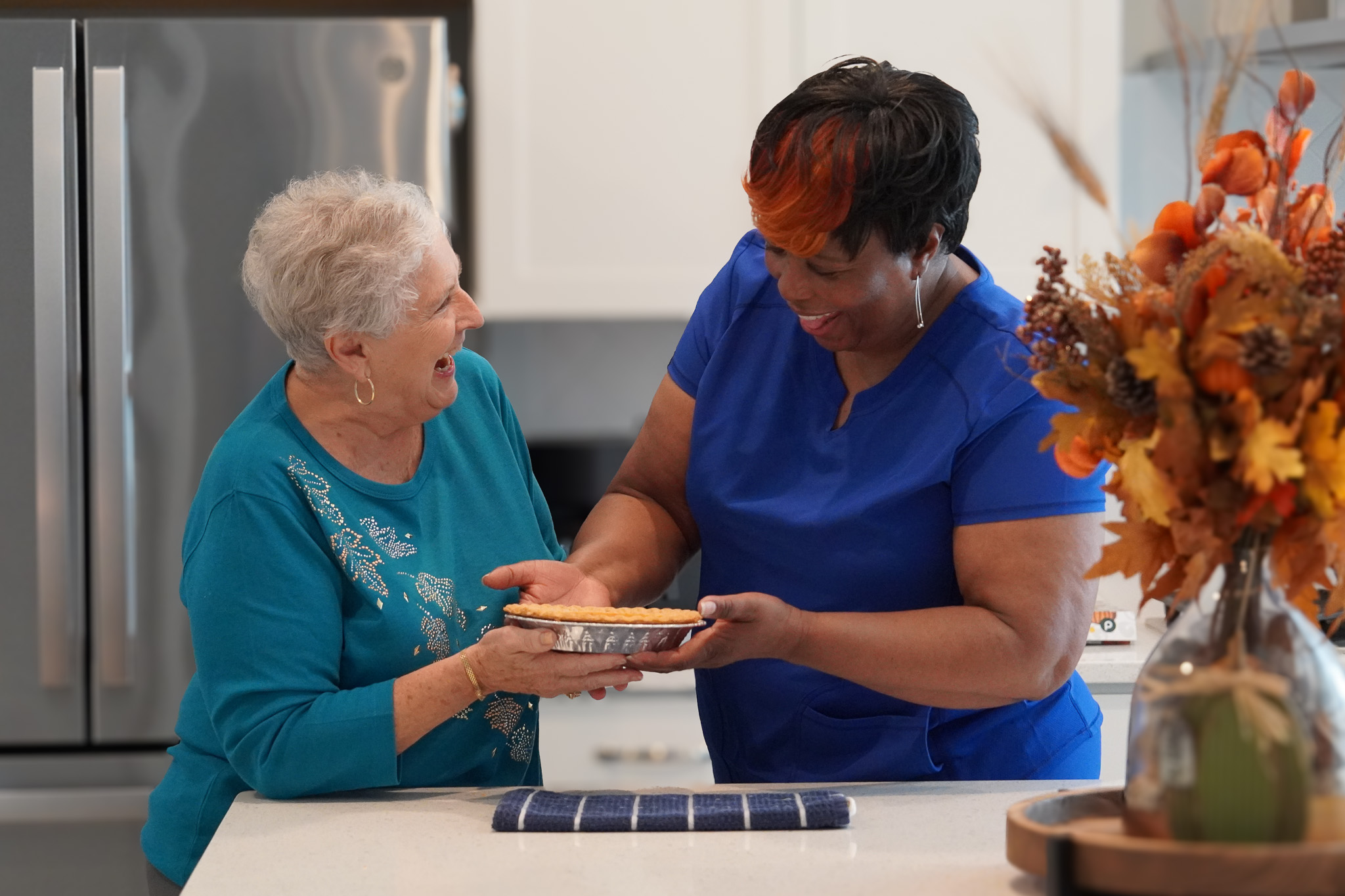
Hosting Thanksgiving When You’re a Family Caregiver: Tips for Reducing Stress
Thanksgiving has a way of filling a home with familiar sounds and smells — a pie cooling on the counter, quiet chatter from the living room, someone asking if the rolls are almost ready. For many families, it’s a day wrapped in memories and long-standing traditions.
But if you’re caring for an aging loved one, you may notice the holiday feels a little different these days. You’re still looking forward to the gathering, but you’re also thinking about comfort, timing, mobility, and how to keep the day running smoothly for the person who now needs a bit more support. It’s a change many families notice as they begin balancing old traditions with new responsibilities.
The good news? With the right mindset and a few thoughtful adjustments, Thanksgiving can still feel warm, meaningful, and enjoyable — for your loved one and for you. Here are some helpful ways to make the day flow a little easier when caregiving is part of your celebration.
Simplify the parts of the day that tend to get overwhelming
Thanksgiving doesn’t lose its charm when you scale it back. In fact, simplifying the menu or preparing a few items ahead of time often brings more calm into the day. Whether you trade a few homemade dishes for store-bought sides or ask family members to pitch in, keeping things manageable makes it easier to stay present — especially when you’re supporting someone who thrives on steadiness.
Let others help in ways that truly make a difference
When guests ask, “What can I do?” they usually mean it. Assign tasks that lighten your load: bringing a dessert, helping plate food, welcoming guests, or handling drinks. When responsibilities are shared intentionally, it frees you up to check in with your loved one and enjoy the day instead of feeling pulled in every direction
Keep the familiar rhythm of your loved one’s day
A predictable routine can be grounding for aging adults, even on a holiday. Try to keep regular mealtimes, rest breaks, and medication reminders in place. If the house gets loud or busy, having a quieter room ready for a short break can make the entire celebration feel smoother — and helps your loved one rejoin the gathering with energy.
Design the space with comfort in mind
Small adjustments can make a big difference. Choose a supportive, easy-to-access chair; clear walkways of clutter or décor; and add lighting to dim areas. If the dining room gets crowded, consider seating your loved one somewhere that allows them to be part of the conversation without sitting in the busiest spot. These thoughtful touches help them stay engaged without feeling overwhelmed.
Pay attention to what the day teaches you
At the end of the night — once the plates are stacked and the last guest leaves — many caregivers naturally reflect on the day. Maybe you noticed your loved one needed more hands-on help than last year. Maybe you felt stretched thin trying to manage the meal, the guests, and the caregiving all at once.
These moments aren’t meant to discourage you. They simply offer clarity about what might make life more comfortable and sustainable moving forward. For many families, this is when the idea of home care becomes part of the conversation — not because the holiday was difficult, but because it highlighted areas where steady, consistent support could help.
Home care can bring balance to everyday routines, offer companionship, assist with meals or mobility, and lessen the pressure on family caregivers. Even a few hours of help a week can make days like Thanksgiving — and the days in between — feel more relaxed and manageable.
Final Thoughts
Hosting Thanksgiving while caring for an aging loved one isn’t always simple, but it can still be a day filled with connection, comfort, and familiar joy. When you focus on what matters most, protect the routines that help your loved one feel steady, and pay attention to the moments that reveal new needs, the holiday becomes easier to navigate — and far more enjoyable for everyone involved.
And as the season continues, you may find yourself thinking not just about the holiday itself, but about what would make everyday life feel smoother in the weeks and months ahead. Those reflections are valuable. They help you understand what support your loved one may benefit from and what could bring more balance to your own day-to-day responsibilities.
If your family is beginning to think about adding a little help at home, Daybreak is here to support you. Visit daybreakcare.com or call 803-356-4451 to learn more about how we can walk alongside you and your loved one.



